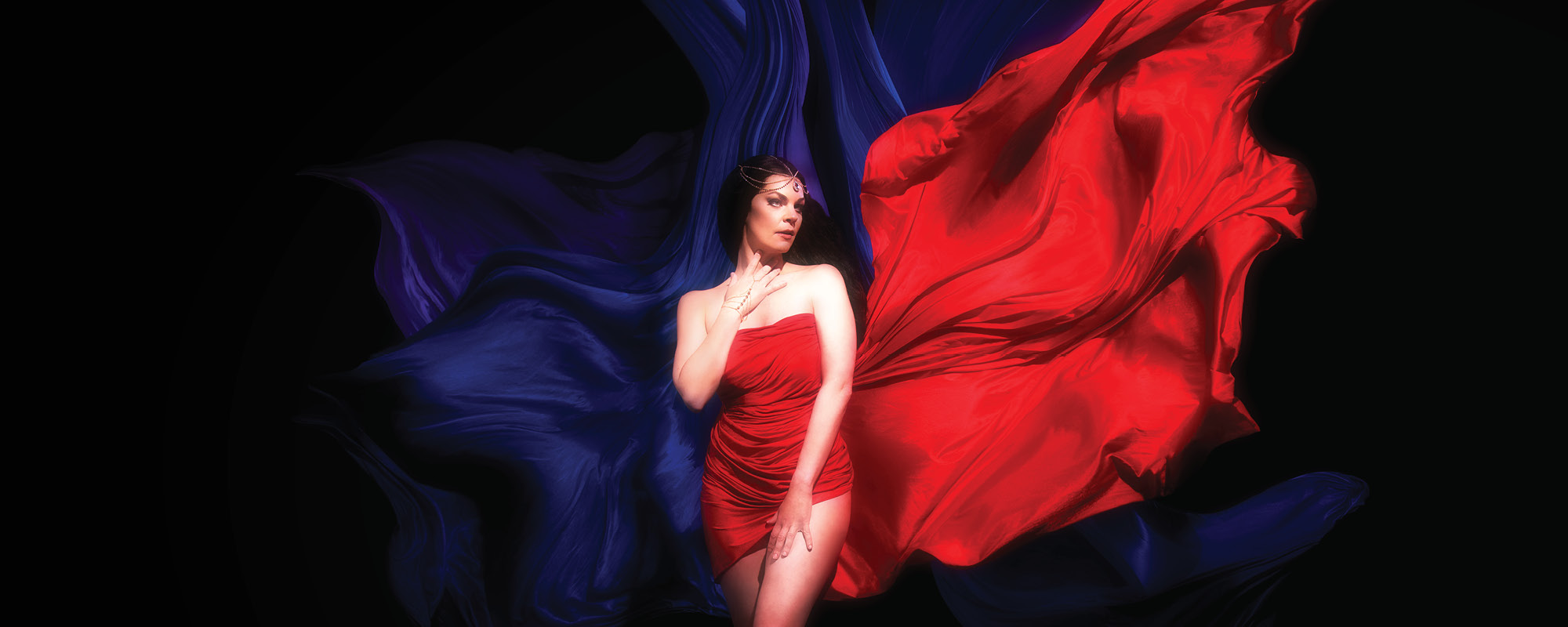
Salome
Salome
Based on Oscar Wilde’s sensational play, Richard Strauss’s Salome took the world by storm at its premiere with princess Salome at its center, whose growing obsession with the imprisoned prophet John the Baptist propels the story to its dramatic conclusion. Featuring music that is both colossal and dazzling, this new production will leave you on the edge of your seat. Read the synopsis >
Our new production features soprano Sara Gartland making an anticipated role debut as Salome, with DMMO Marshall and Judy Flapan Music Director and Principal Conductor David Neely leading the DMMO Festival Orchestra. Alison Pogorelc makes her company debut as director for this new production.
This production contains mature content including nudity and scenes of a violent nature.
PERFORMANCES
June 29 at 7:30pm - SOLD OUT
July 7 at 2:00pm - SOLD OUT
July 13 at 1:00pm - SOLD OUT
July 19 at 8:30pm - SOLD OUT
All performances of Salome are currently sold out. If you would like our Box Office to contact you if tickets open up, please fill out the Ticket Request Form or call (515) 209-3257.
MUSIC BY
Richard Strauss
LIBRETTO BY
Hedwig Lachmann after Oscar Wilde
PREMIERED
December 9, 1905
Semperoper Dresden
SUNG IN
German (with English supertitles)
ESTIMATED RUN TIME
1 hour, 45 minutes with no intermission
PREVIOUS PRODUCTION
2002
The Artists
 Alan Williams
First Soldier
Alan Williams
First Soldier
 Sergio Martínez
Second Soldier
Sergio Martínez
Second Soldier
 Audrey Welsh
Page
Audrey Welsh
Page
 Will Upham
First Jew
Will Upham
First Jew
 Michael Deshield
Second Jew
Michael Deshield
Second Jew
 Shawn Roth
Third Jew
Shawn Roth
Third Jew
 Sam Krausz
Fourth Jew
Sam Krausz
Fourth Jew
 Matthew Soibelman
Fifth Jew
Matthew Soibelman
Fifth Jew
 Daniel Rich
First Nazarene
Daniel Rich
First Nazarene
 Zachary Taylor
Second Nazarene
Zachary Taylor
Second Nazarene
 Gabrielle Turgeon
A Slave
Gabrielle Turgeon
A Slave
 Robert Frazier
A Cappadocian
Robert Frazier
A Cappadocian
 Brian Robertson
Combat Director
Brian Robertson
Combat Director
 Stephanie Schneider
Intimacy Coordinator
Stephanie Schneider
Intimacy Coordinator
The Music
Richard Strauss is no stranger to the Des Moines Metro Opera audience. His Ariadne auf Naxos was produced in 1980 and again in 2004, Der Rosenkavalier in 1992, Salome in 2002 and Elektra in 2013. In the last decades of the nineteenth century Strauss composed wonderful tone poems for orchestra, among them "Don Juan", "Don Quixote" and "Thus Spoke Zarathustra." In these remarkable pieces he proved himself one of the greatest orchestrators of all time, following in the footsteps of the highly original Hector Berlioz.
It was inevitable that he would compose for the lyric stage. He conducted a great deal of opera and was part of Cosima Wagner's team at Bayreuth. He also wrote wonderful art songs, many of them to be sung by his wife Pauline who was a professional singer. His first two scores—Guntram and Feuersnot—showed promise but fell short of international acclaim.
In 1905 he composed Salome, which met with praise, rejection and revulsion in various corners of the western world. It also made the composer a household name and assured the celebrity of his career. He worked feverishly on it, turning it into another tone poem for orchestra with intense vocal and dramatic characterizations. The score is one of a kind in its intense and morbid eroticism, its wildly imaginative orchestral palette and its jarring juxtaposition of the beautiful and the grotesque.
Salome may well be Strauss' most original contribution to the art form and remains, nearly 120 years after it premiere, one of the most astonishing and musically shocking works ever written.











